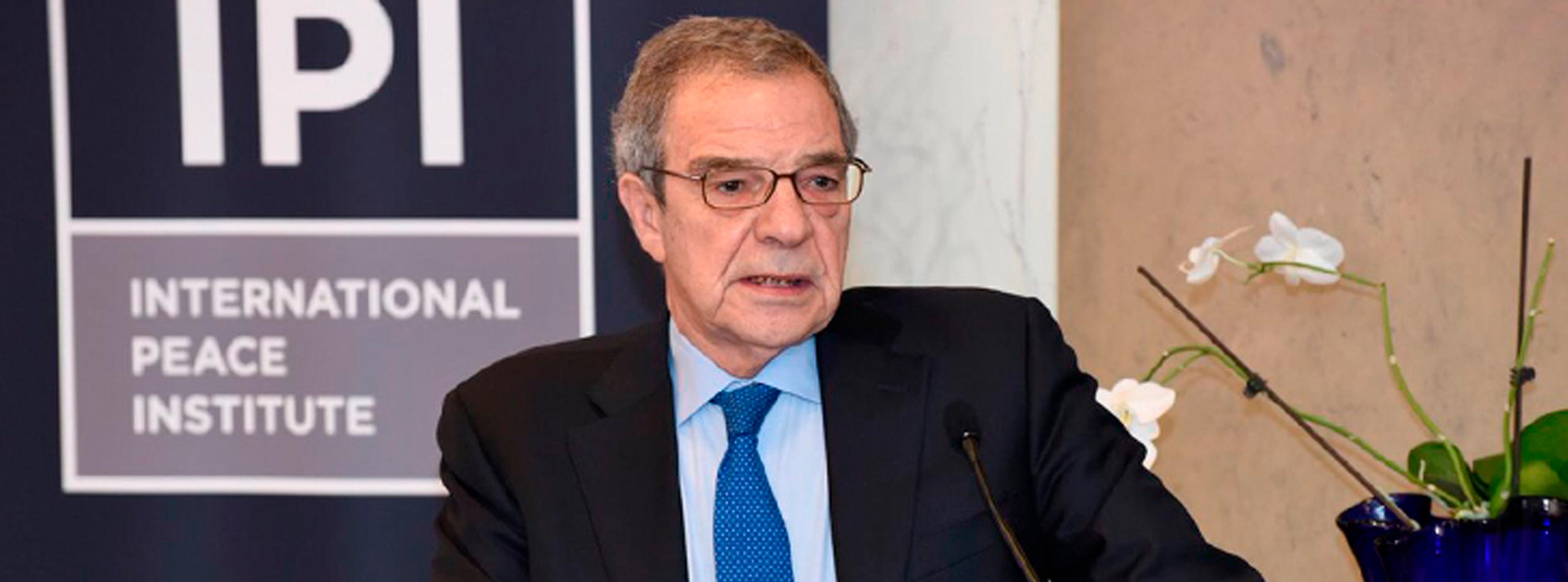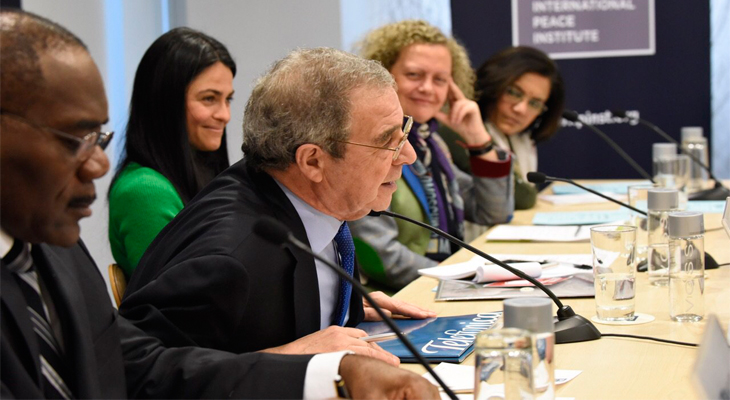03.02.2017
César Alierta presents Profuturo to the UN
ProFuturo is present in 326 schools of ten Latin American and African countries, and has trained almost 1,500 teachers. It aims to multiply this impact, through the collaboration with the SDG Fund of the UN.
César Alierta presents Profuturo to the UN

ProFuturo is present in 326 schools of ten Latin American and African countries, and has trained almost 1,500 teachers.
After his recent appointment as Global Advisor to the SDG Fund of the UN in Digital Education and Sustainable Development, César Alierta, executive president of Fundación Telefónica, visited the United Nations headquarters in New York on Friday, February 3. The visit coincided with the UN Social Development Commission, which met this week in New York to review strategies to reduce inequalities.
The director and technology business leader, who up until 2016 was executive president of Telefónica, will advise the UN Sustainable Development Goals Fund on how the use of information technology can contribute to increasing access to education for millions of children. This collaboration comes within the framework of the ProFuturo project, an initiative of Fundación Telefónica and Fundación Bancaria ‘la Caixa’ which aspires to improve the education of over 10 million children by 2020 in Africa, Latin America and Asia, with the aim of reducing inequality in the world.
At a breakfast meeting with government representatives, the private sector and UN Agencies at the Institute Peace Institute, organized by the SDG Fund, Alierta clearly explained that education and technology are a “lever of transformation and improvement” in opportunities for children living in situations of vulnerability”. He stated that 65% of children starting primary education today, will work in jobs that have not yet been created, and which involve training in digital skills. Access to quality education is the Sustainable Development Goal number 4, and was approved by the United Nations as part of the 2030 Agenda of Sustainable Development for the period 2016-2030.
Alierta also underlined the need for public institutions and private sectors to unite in order to end inequalities, reduce the education gap and hence eradicate poverty in the world.
Education technology for social inclusion
In a world where it is estimated that over 50 million children do not attend school, and that 24 million will never go to school, digital education, understood as the use of information technology to accessibly provide quality contents, can improve levels of education in the most remote areas and in the most vulnerable contexts. This is the case in areas of conflict, for example, where the majority of non-schooled children live.
As an example, César Alierta described the experience of ProFuturo in refugee camps, where with the use of simple technology this pilot project is enabling families to continue their education and adapt it to the context and specific experience of refugees. “The project has made it possible to adapt the syllabus, train teachers and tackle the problem of infrastructures”, he said.
“We are convinced that we have the best opportunity to use technology to speed up development and social well-being of citizens, through digital education”, César Alierta.
Alierta also underlined that technology ensures access to quality education for anybody anywhere in the world, because “it increases motivation among students, it reduces the drop-our rate, it provides tools to teachers, and prepares students in competences and skills for the 21st century”.

For this reason, ProFuturo was born with the mission of providing “the same opportunities to children in vulnerable environments through quality, personalized and innovative education, to be able to transform learning and to provide tools for the future”. “We are convinced that we have the best opportunity to use technology to speed up the development and social well-being of citizens through digital education”.
Global Advisor to the UN
Through this collaboration with the SDG Fund, Cesar Alierta has been appointed Global Advisor in Digital Education and Sustainable Development, where he will lead work in digital education of this United Nations mechanism, specifically created to achieve these worldwide goals. This is a pro-bono collaboration. Alierta will encourage the role of digital education to promote sustainable development through its triple contribution to social justice, to fighting against poverty and to environmental protection.
In the words of Paloma Durán, director of the SDG Fund, “it is an honour to have this generous contribution from one of the world leaders in technology”. She also added that “to achieve quality education for all children everywhere in the world is an ambitious challenge. To do this, we need to seek collaboration between governments, civil society and the United Nations, where different development actors should contribute”.
As an interagency mechanism of the UN, the SDG Fund, created with the initial contribution of the Spanish government, followed by another 20 donors, is already working in 23 countries contributing the achievement of the 17 SDGs. A particular priority is its work to ensure that public and private sectors collaborate in new alliances. In education, the incorporation of information technology is a clear example of its contribution to reducing the education gap and to promoting equality.
A project present in ten Latin American and African countries
ProFuturo was created with the aim of transforming the education of 10 million children by 2020. It now has active projects in ten countries, including Angola, Uganda, Colombia, Peru, Kenya, Tanzania and Guatemala. There are already 326 schools and almost 1,500 teachers who are implementing the digital and personalized model of ProFuturo, and around 3 million children who have received quality education through the education programs of Fundación Telefónica.
About ProFuturo
ProFuturo is an initiative started up by Fundación Telefónica anjd Fundación Bancaria “la Caixa” aimed at reducing the education gap in the world and to boost children’s digital education in emerging countries. Its aim is to provide quality education to 10 million children at risk of social exclusion by 2020. The project aspires to welcome and promote the participation of other companies and institutions. Projects are currently underway in Africa and Latin America and the plan is to extend the programme in Asia.